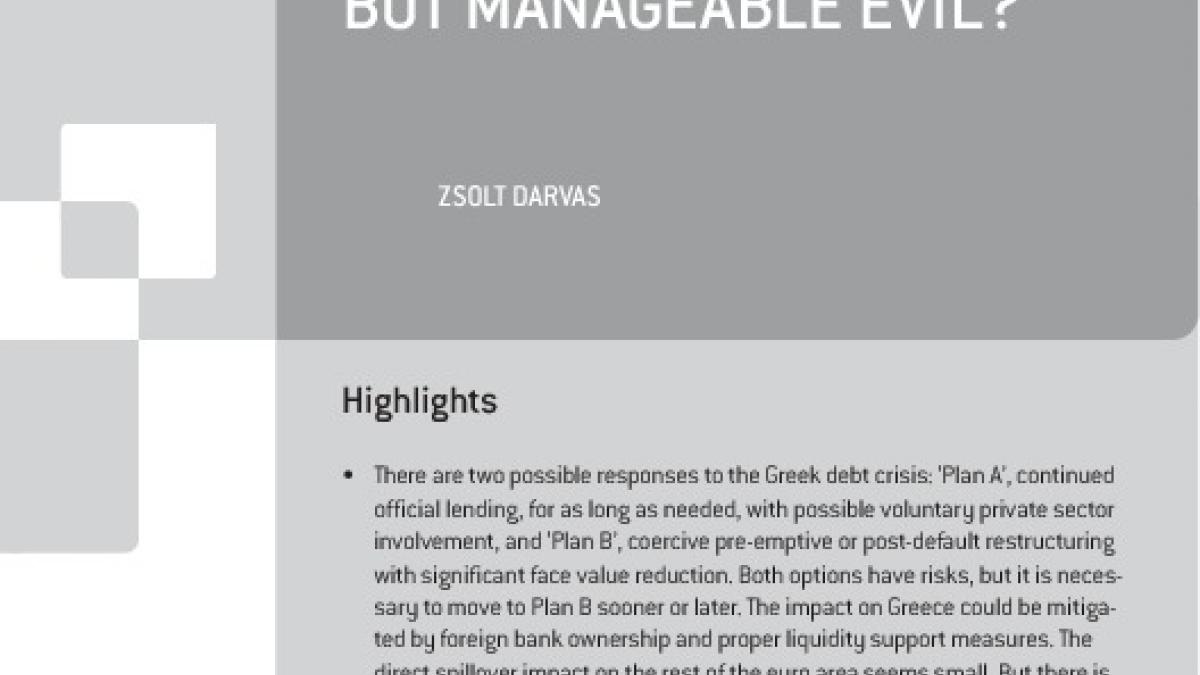Policy brief
Debt restructuring in the euro area: A necessary but manageable evil?

There are two possible responses to the Greek debt crisis: ‘Plan A’, continued official lending, for as long as needed, with possible voluntary private sector involvement, and ‘Plan B’, coercive pre-emptive or post-default restructuring with significant face value reduction. Both options have risks, but it is necessary to move to Plan B sooner or later. The impact on Greece could be mitigated by foreign bank ownership and proper liquidity support measures. The direct spillover impact on the rest of the euro area seems small. But there is the risk of contagion, which is a serious concern. There is a cautious case for delaying somewhat Plan B in order to prepare for it.



